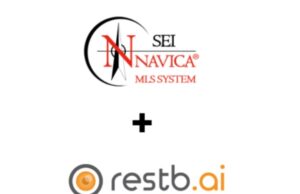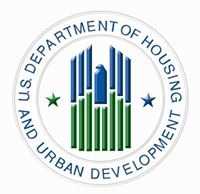Funding Helps Localities Create, Maintain 1,500 Jobs
WASHINGTON, DC – September 21, 2012 – (RealEstateRama) — The U.S. Department of Housing and Urban Development (HUD) today awarded $75 million in grants to help public and assisted housing residents connect with local services to obtain education and training to find jobs. The funding allows grantees across the U.S., the District of Columbia, Guam, the Virgin Islands and Puerto Rico to retain or hire 1,500 service coordinators to work directly with HUD-assisted families to connect them to the supportive services that meet their individual needs to become gainfully employed. See local impact of HUD funding here.
“This funding ultimately links individuals to childcare, computer access, job training and other basic skills individuals need to compete for jobs that pay a living wage,” said HUD Secretary Shaun Donovan. “To continue to grow America’s economy, we must see to it that every American has the skills and resources they need to become gainfully employed.”
The funding announced today includes $15 million through the Public Housing-Family Self-Sufficiency Program (PH-FSS); and $60 million through the Housing Choice Voucher- Family Self-Sufficiency Program (HCV-FSS).
The service coordinators, retained or hired through both of these programs, work directly with residents to connect them with local organizations that provide education and job training and placement opportunities; as well as childcare, counseling, transportation and computer and financial literacy services available in their community. Both programs encourage innovative strategies that link public housing and Housing Choice Voucher assistance with other resources to enable participating families to find employment; increase earned income; reduce or eliminate the need for rental and/or welfare assistance; and make progress toward achieving economic independence and housing self-sufficiency.
Participants in both programs sign a five-year contract that requires the head of the household to obtain employment and no longer receive welfare assistance at the end of the five-year term. As the family’s income rises, a portion of that increased income is deposited in an interest-bearing escrow account. If the family successfully completes its FSS contract, the family receives the escrow funds that it can use for any purpose, including paying educational expenses, starting a business or paying debts.
The Family Self Sufficiency (FSS) Program is a long-standing resource for increasing economic security and self-sufficiency among participants. HUD’s Office of Policy Development and Research issued Evaluation of FSS Program: Prospective Study in 2011 that evaluated the effectiveness of the FSS Program. Conducted from 2005 to 2009, the study showed that financial benefits are substantial for participants who remain and complete the program. This study is the second of a three-part series that evaluates the effects of the FSS program. The first study found individuals who participated in the FSS program fared better financially than those who did not enroll in the program.
PD&R is currently working on a follow-up evaluation to the Prospective Study that tracks the outcomes of people who were still enrolled in the program at the end of the study. The third and final study looks at the effectiveness of the FSS program nationally. This will be the first national study of the FSS program and is part of HUD’s Transformation Initiative that uses metrics and research to evaluate programs and gauge performance to encourage more transparency and accountability within the agency.
###
HUD’s mission is to create strong, sustainable, inclusive communities and quality affordable homes for all.
HUD is working to strengthen the housing market to bolster the economy and protect consumers; meet the
need for quality affordable rental homes: utilize housing as a platform for improving quality of life; build
inclusive and sustainable communities free from discrimination; and transform the way HUD does business.
More information about HUD and its programs is available on the Internet at www.hud.gov and
http://espanol.hud.gov. You can also follow HUD on twitter @HUDnews, on facebook at
www.facebook.com/HUD, or sign up for news alerts on HUD’s News Listserv.
Contact:
Donna White
(202) 708-0685









